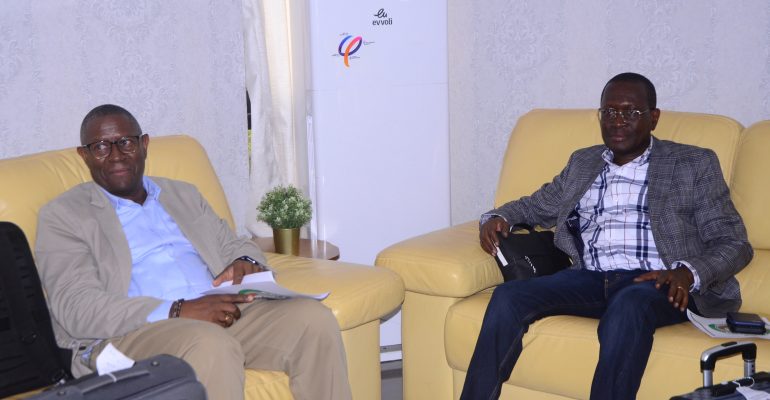ECOWAS COURT TO HOLD SENSITISATION PROGRAMME IN GUINEA BISSAU
The ECOWAS Court of Justice will hold a sensitisation programme in Guinea Bissau from 18 to 24 February, 2024 as part of the annual outreach programmes of the Court organised in Member States of ECOWAS.
The sensitisation programme is intended to create awareness about the Court, its mandate and jurisdiction, and its judicial and non-judicial activities. It is therefore an avenue for increasing visibility of the Court among Community citizens who are among the major stakeholders of the Court. This is in line with ECOWAS Vision 2050 – ECOWAS of Peoples: Peace and Prosperity for All.
The week-long programme will be preceded by courtesy visits to high-ranking officials of the government of Guinea Bissau. This will be followed by presentations and discussion sessions including a judicial dialogue, lawyers and law students’ forum, and television and radio appearances. The sensitization will be rounded off with a press conference on Friday, 23 February 2024.
Expected at different sessions are government officials, President and Judges of the Supreme Court, ECOWAS officials in Guinea Bissau and representatives of various government and civil society organizations.
The delegation from the Court will make presentations on topics including the mandate and jurisdiction, filing of cases, practice and procedure before the Court, women’s rights, and execution of judgments of the Court.
The delegation from the ECOWAS Court of Justice comprises President of the Court, Justice Edward Amoako Asante, Vice President, Justice Gberi-Bè Ouattara, and other judges of the Court – Justices Dupe Atoki, Sengu Mohamed Koroma and Ricardo Claúdio Monteiro Gonçalves. The judges will be accompanied on the mission by key staff from the Registry, Research and Documentation Departments as well as the Communications and Protocol units of the Court.
The ECOWAS Court of Justice was established in 1991 as the principal legal organ of the Community. The status, composition, powers, and other issues concerning the Court are set out in the Protocols relating to the Court.
The Court is presently composed of five (5) independent judges. A 2005 Supplementary Protocol granted direct access to individuals to approach the Court with certain causes of action including human rights violations.

